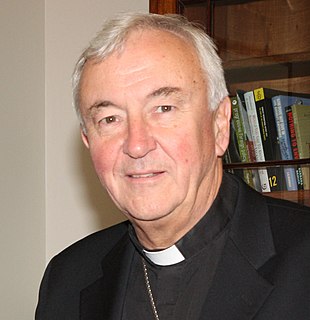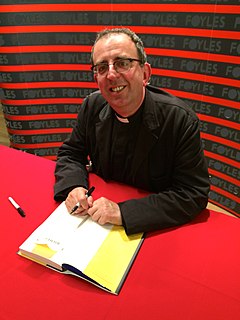A Quote by Charles Hodge
If all Church power vests in the clergy, then the people are practically bound to passive obedience in all matters of faith and practice; for all right of private judgment is then denied.
Related Quotes
Power to the people' can only
be put into practice when the power exercised by social elites is
dissolved into the people. Each individual can then take control of
his daily life. If 'Power to the people' means nothing more than
power to the 'leaders' of the people, then the people remain an
undifferentiated, manipulatable mass, as powerless after the revolution as they were before. In the last analysis, the people can never
have power until they disappear as a 'people.
One faith, St. Paul writes (Eph. 4:5). Hold most firmly that our faith is identical with that of the ancients. Deny this, and you dissolve the unity of the Church ... We must hold this for certain, namely: that the faith of the people at the present day is one with the faith of the people in past centuries. Were this not true, then we would be in a different church than they were in and, literally, the Church would not be One.
As patterns of obedience develop, the specific blessings associated with obedience are realized and belief emerges. Desire, hope, and belief are forms of faith, but faith as a principle of power comes from a consistent pattern of obedient behavior and attitudes. Personal righteousness is a choice. Faith is a gift from God, and one possessed of it can receive enormous spiritual power.
If you understand real practice, then archery or other activities can be zen. If you don't understand how to practice archery in its true sense, then even though you practice very hard, what you acquire is just technique. It won't help you through and through. Perhaps you can hit the mark without trying, but without a bow and arrow you cannot do anything. If you understand the point of practice, then even without a bow and arrow the archery will help you. How you get that kind of power or ability is only through right practice.
It is terribly important to realize that the leap of faith is not so much a leap of thought as of action. For while in many matters it is first we must see then we will act; in matters of faith it is first we must do then we will know, first we will be and then we will see. One must, in short, dare to act wholeheartedly without absolute certainty.
The problem is that, regardless of what our theologies tell us about the purpose of the clergy, the actual effect of the clergy profession is to make the body of Christ lame. This happens not because clergy intend it (they usually intend the opposite) but because the objective nature of the profession inevitably turns the laity into passive receivers.




































